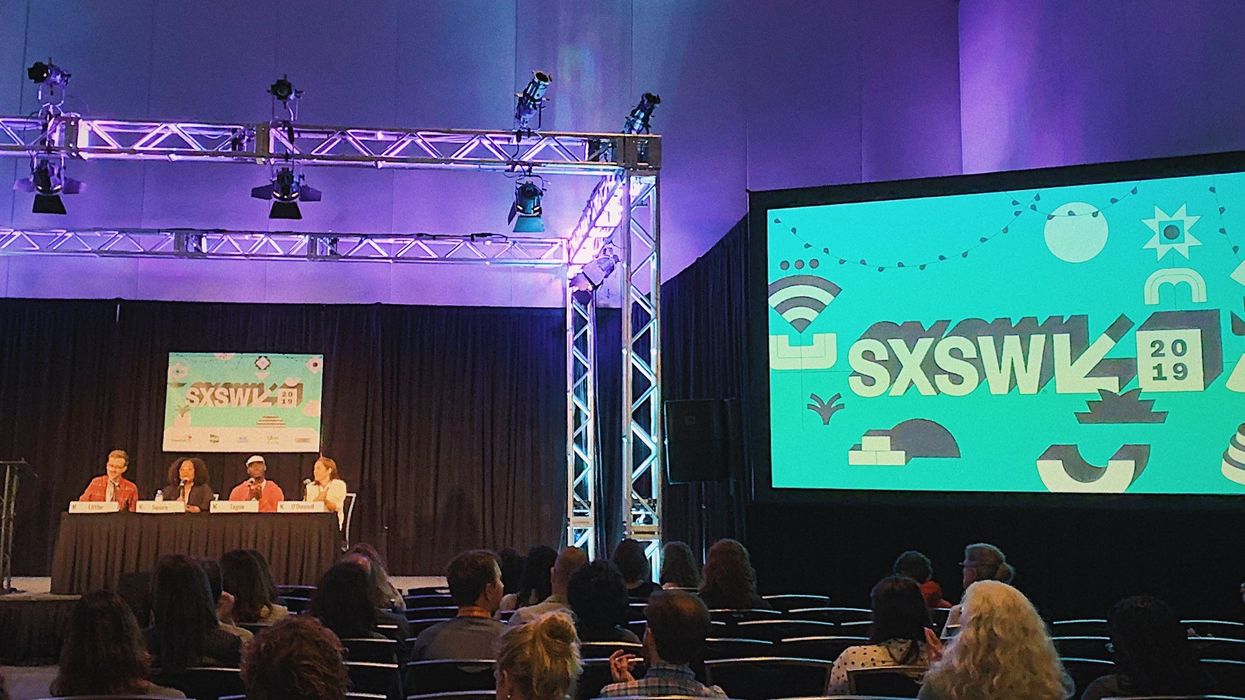'Is it Salacious Enough?': Tips on How to Perfect Your Podcast Pitch
Looking to tell your stories to broad audiences? Have you considered podcasting?

Podcasting, after all, can be a viable way to build an audience and a brand, which can then be leveraged into more traditional projects like TV shows. Homecoming, both a podcast from Gimlet Media and an Amazon Prime show starring Julia Roberts, is just one recent example.
SXSW explored the market and process of fiction podcasting as a new storytelling medium in its panel, Back on Script, yesterday afternoon. The panel included Benoni Tagoe from Issa Rae Productions, Mimi O’Donnell from Gimlet, Chris Littler of “36 Questions" and "Limetown," and Tiffany Square from Stitcher as moderator.
One of the things they brought up early was how to nail a pitch. “I think that whenever you’re pitching something, you always have to be able to prove why you’re the person who should be telling that story,” Tagoe said.
He said he looked for two things. Is it salacious enough? That’s the marketing component for podcasting, something tantalizing that will draw listeners, and is it intimate? Is it a world where you get to hear a person’s inner thoughts? This is the personal side that will keep listeners around.
For O'Donnell, uniqueness is key.
“I think a big question is how does it work for audio? For sure,” she said. “At Gimlet, I feel like we also have the opportunity to find stories that maybe someone else won’t take a chance on and risk. So I try to find things that people wouldn’t maybe have seen before or heard before.”
If it's a story that could happen in another medium, that's less attractive as a property, in her opinion.
"You want to be hungry when you go into the pitch room. You don’t want to be starving."
Littler added that a pitch should encourage a listener's curiosity. “It also asks good questions,” Littler said.
For example, is the idea exciting to you? If you pitch to a stranger, do they ask good questions, or are they disinterested? Another big issue is when your audience is only asking, "Why?" or maybe "What for?"
As a practical matter, Littler pointed out that podcasting is not usually an incredibly lucrative outlet, so he and others have to supplement their income with other jobs. He urged the audience to remember to take care of themselves.
"You want to be hungry when you go into the pitch room," he said. "You don’t want to be starving."
What are some of your favorite podcasts and do you think they would work for television too?
For more, see our ongoing list of coverage of the 2019 SXSW Film Festival.
No Film School's podcast and editorial coverage of the 2019 SXSW Film Festival is sponsored by Blackmagic Design.












